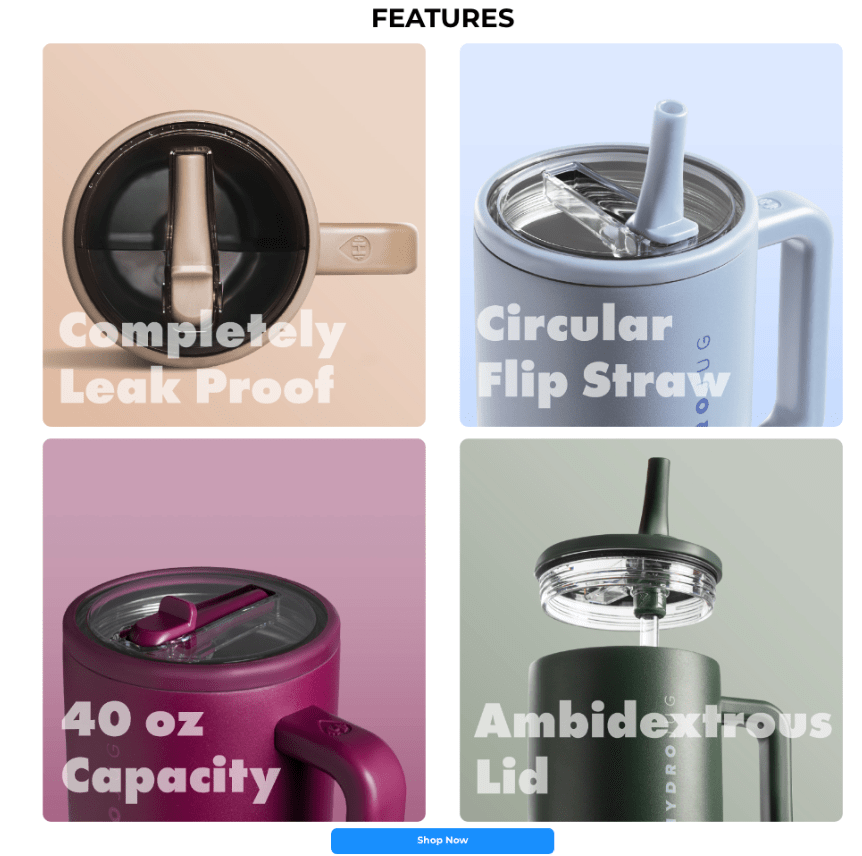

Updated January 13, 2026
Learn how transparency, consistent branding, customer-centric practices, and effective communication can elevate your company's reputation in the eyes of stakeholders and customers alike.
Company credibility refers to the perceived trust and belief a group has towards a business as a result of their interactions. Many businesses might have an “out of sight, out of mind” approach if they are doing well - but business credibility and understanding should be important to all business owners.
The importance of building and maintaining credibility in business lies in its ability to foster trust, enhance brand reputation, and ultimately drive customer loyalty and conversion rates.
Consumers are likely to buy from businesses they perceive as reliable and ethical. It also influences partnerships and collaborations, as other organizations prefer to work with companies that have a strong reputation for integrity. Ultimately, credibility strengthens brand value, enhances market competitiveness, and drives long-term loyalty and growth.
Building credibility with an audience or potential customers means your company needs to be transparent, reliable, and believable.
This article will dive into several ways small businesses or even large corporations can build their company’s credibility, as well as some examples of companies that showcase strong credibility in their markets.
Maintaining a cohesive and authentic brand message across all communication channels is vital for establishing a strong brand identity, building trust with the audience, and ensuring consistent experiences – all aspects of business credibility.
Consistency in messaging helps reinforce the brand's values, mission, and voice, ultimately fostering brand recognition and loyalty.
Dove believes that beauty should be a source of confidence, and not anxiety. Because of this mission, all of their messaging through social media, marketing campaigns, and other channels, focuses on helping women develop a positive relationship with their self-esteem.
In their 2024 Super Bowl ad, their commercial referenced young girls in sports, with the message #KeepHerConfident, as many girls drop out of sports at an early age.
Here are some tips to align your brand messaging with your company’s values:
Overall, a consistent and authentic brand message across all communication channels is essential for building a strong, recognizable brand and forging meaningful customer relationships.
Transparent communication plays a pivotal role in building and sustaining company credibility. Businesses can foster trust with their employees, stakeholders, and customers by being open, honest, and forthcoming in their communication.
At Whole Foods, the grocery store chain prides itself on nourishing people and the planet, which is why its business focuses on transparent communication when it comes to its values, products, and goals.

By embracing transparent communication practices, businesses can build and maintain credibility, fostering trust and accountability among their stakeholders, employees, and customers.
According to an article in Harvard Business Review, product performance and customer service are closely linked in any quality program, which showcases that product quality and company credibility are directly correlated.
High product or service quality leads to higher customer satisfaction, which builds credibility.
Continuously evaluate and improve service delivery as an ongoing journey, not just a destination, to enhance service excellence and meet evolving customer expectations.
Positive customer experiences impact company credibility. Building and maintaining strong customer relationships result in repeat business and positive referrals, highlighting the significant impact of these relationships on the company's credibility and overall success.
In turn, strong customer relationships can facilitate improved customer feedback and communication, which fosters an environment of trust.
According to a 2023 airline satisfaction survey, Southwest Airlines ranked highest in customer satisfaction. How does Southwest do this?
The airline offers multiple avenues for customer support, like chatbots, email, and phone. They also have a comprehensive help center.

Along with their service-oriented approach, the airline adapted to customer expectations, and invested over $2 billion to improve travel communications like bag tracking and increase self-service options. They aim to make traveling more convenient while keeping their customers satisfied.
The value of thought leadership and industry expertise in establishing credibility cannot be overstated. Thought leadership and industry expertise build trust with stakeholders, clients, and the broader industry. Establishing oneself as an authority in a particular field contributes significantly to credibility.
Producing high-quality, insightful content based on industry expertise positions individuals and companies as credible sources and strengthens connections with the audience.
Companies can exhibit their thought leadership and expertise to their target audience through the following:
Thought leadership sets individuals and organizations apart, creating a reputational impact that fosters trust and credibility.
Ethical business practices are crucial in earning and maintaining credibility with a customer base.
Businesses must make various ethical considerations to ensure they operate with integrity and contribute positively to society.
Some of the most important ethical key factors that businesses must take into account include:
By considering these ethical considerations, businesses can build credibility, foster trust with stakeholders, and contribute to a more sustainable and socially responsible marketplace.
Social proof validates a brand's trustworthiness, as positive testimonials, online reviews, case studies, endorsements, and user-generated content demonstrate the reliability and integrity of a product or service.
Through social proof, target audiences witness others in the customer base actively engaging with a brand, enhancing its credibility and showcasing business success.
Hydrojug, a water bottle company, focuses on having a strong online presence by showcasing the features of its products on their website.

Below each product are customer reviews from real people, along with photos of them using the different products.

Companies utilize quotes, reviews, or testimonials from industry leaders to highlight the credibility of their offerings.
Social proof acts as a powerful tool for businesses to build credibility, establish trust, and ultimately drive conversions by showcasing the positive experiences and interactions of others with their brand.
Evaluating a company’s credibility is essential before engaging in business, forming partnerships, or making purchasing decisions. Here are key factors to consider:
By considering these factors, you can form a well-rounded view of a company’s credibility, helping ensure informed decisions and reducing risk in business interactions.
Identifying red flags that undermine a company’s credibility can help you avoid risky partnerships, purchases, or investments. Here are five key warning signs:
Being aware of these red flags allows you to make more informed decisions, protecting your business relationships, and ensuring engagement with reputable, trustworthy companies.
Credibility is closely linked to human attributes such as honesty, integrity, and transparency, and it forms the foundation of a company's reputation and ability to deliver on its promises.
To build up their company credibility, companies should do the following:
By showcasing well-crafted brand images, businesses can establish credibility and trustworthiness in the eyes of their audience, leading to increased trust and favorable perceptions.


